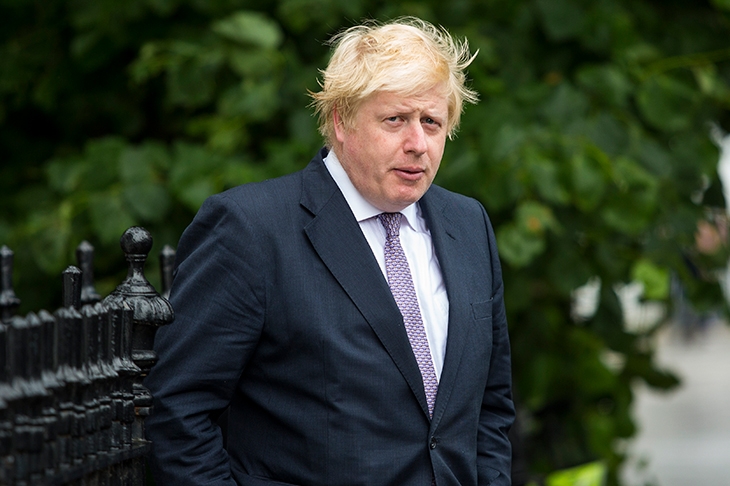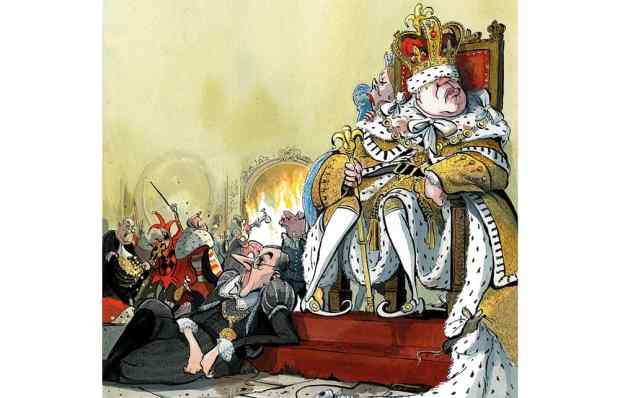Whatever advantages money may have brought Rishi Sunak as he rose to become Chancellor of the Exchequer, his wealth has now become a serious hindrance to his career. Whatever decisions he takes, everything is seen through the prism of his personal financial situation. If he rejects demands for greater public spending, he will be accused of throwing the poor to the lions. If he raises taxes, he will be accused of failing to understand how ordinary people are struggling. If he cuts them, he will be accused of pandering to his rich friends.
Even acts of private generosity by Sunak seem to arouse suspicion when made public. This week it was revealed that the Chancellor and his wife (who is apparently richer than the Queen) have donated more than £100,000 to his alma mater, Winchester College. This was immediately set in contrast to the government’s budget for state schools, which in spite of an extra £4.4 billion will mean, according to the Institute for Fiscal Studies, that the average spend per pupil will only be the same in real terms as it was in 2010. The narrative being promoted is that here is a wealthy Chancellor helping a privileged few while denying education opportunities to the many.
In funding bursaries, however, Sunak is helping to provide places for children who would not otherwise be able to attend Winchester, allowing them to have the potentially life-changing education that he enjoyed. That’s hardly ignoble – and better than those privately educated MPs who propose making it harder for other families to send their children to private schools. Tory education policy has for decades been designed to give choice in education to millions of families – a policy that, until lockdown, had narrowed the attainment gap between rich and poor.
The Tories might barely speak about education nowadays. Tony Blair’s ‘education, education, education’ seems to have mutated to ‘health, health, health’ in recent years. But the academy programme was a huge success. Britain’s top 200 state schools today achieve better results for their pupils than the top 200 private schools: an astonishing statistic, considering the funding gap.
Boris Johnson once said that he doesn’t see why every school should not be as good as the one he went to (Eton) – his early definition of levelling up. Yet his government’s greatest error is not to have built on David Cameron’s reforms of the public sector. When the Conservatives returned to power in 2010 after 13 years of Blair and Gordon Brown, they had something approaching a big idea. The Tories would place their faith in teachers and make schools independent within the state sector, and therefore free to innovate. Instead of having councils run the school system, there would be many providers. Money would follow the pupil, so the best schools would be able to expand. No one would be forced to send their child to a sink school.
But the momentum has been lost. The Johnson government lacks creative energy. In part this is because the Prime Minister has had to respond to events: Brexit, then Covid, now Ukraine. But it’s hard to point to any Tory reform agenda and all too easy to point to the ways in which lockdown eroded all of the gains made by reforms since 2010, especially in education. Where is the radicalism? Tories now seem to specialise in making life more expensive and highly regulated. The results are all too predictable.
It is time to get back to asking: how can we employ the talent and capital of private enterprise to improve public services? There is still wide support in Britain for a public healthcare system which is free at the point of delivery and therefore unrelated to the ability to pay. But that does not mean that every operation, every treatment must be carried out on NHS premises and by NHS staff. In healthcare as in everything else, mono-poly is the enemy of excellence. Nowhere is that more obvious than with the recent Shropshire maternity scandal. Incompetence was covered up and ideology allowed to prevail over patient choice.
Sajid Javid talks about letting patients go private if they languish on waiting lists for too long, with the procedures to be paid for by the NHS. But at what stage would this happen? How much of the value of the NHS operation could they take with them? Could they top it up? Or opt to go overseas? Until such questions are answered, there is no health reform agenda – just vague ideas. There’s also George Osborne’s ‘insurance premium’ surcharge imposed on private health insurance fees, an extra tax adding 10 per cent. That’s ripe to be abolished.
Free schools allow choice to be given to parents who need it most. It takes time and effort to start a school, of course, but the government needs to be asking: what barriers still lie in the way? Hospitals, housing, transport and many other areas, too, should be examined to see how they can be opened up to greater diversity of provision.
The past two years have required the government to be in emergency mode for much of the time. But look how the successes in the pandemic came about: the development, purchase and rollout of vaccinations – all of which required vision and a willingness to diverge from traditional ways of doing government. Now that we are returning to more normal times, the government needs to get back to the spirit of innovation in public services which existed before Brexit and the pandemic drained it of energy. The quiet revolution of Cameron’s early years needs a reboot.
Got something to add? Join the discussion and comment below.
Get 10 issues for just $10
Subscribe to The Spectator Australia today for the next 10 magazine issues, plus full online access, for just $10.
You might disagree with half of it, but you’ll enjoy reading all of it. Try your first month for free, then just $2 a week for the remainder of your first year.














Comments
Don't miss out
Join the conversation with other Spectator Australia readers. Subscribe to leave a comment.
SUBSCRIBEAlready a subscriber? Log in